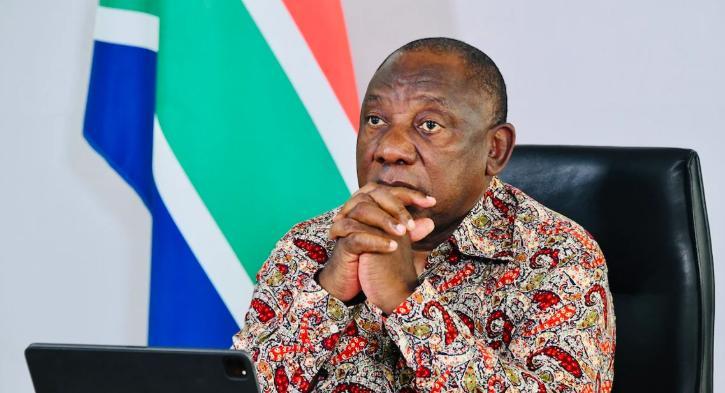Africa-Press – South-Africa. President Cyril Ramaphosa is increasingly becoming a lame duck, with the ANC appearing to shift focus to its leadership succession and being unwilling to take decisive action.
This has become most apparent in the negotiations with the United States over a potential trade deal for the country, with the ANC unwilling to meaningfully engage with the Trump administration’s demands.
The party has also been unwilling to take decisive action to revive South Africa’s economy or address the looming financial crisis created by its excessive spending, which did not translate into faster growth.
Rather, it has been focused on retaining its place as South Africa’s dominant political force through the National Dialogue and now by adding more parties to the Government of National Unity (GNU) to dilute the DA’s influence.
This is despite Ramaphosa admitting the South African economy is in a state of emergency following the ANC’s latest National Executive Committee (NEC) meeting.
The Centre for Risk Analysis (CRA) said this indicated a party determined not to adapt to changing circumstances, both locally and globally.
Ramaphosa closed the ANC’s NEC meeting by saying the country’s economy is in a state of emergency, but called on the party to save it by continuing what it was doing.
In effect, Ramaphosa was calling on the party to double down on the policies that have gotten South Africa to this point.
He applauded the party for adhering to the “progressive policy agenda of the National Democratic Revolution, which is the core pillar of ANC policies”.
Ramaphosa referred to the GNU as a “tactic” that “has enabled the ANC to continue to execute its agenda under conditions imposed on us by the strategic electoral setback we suffered last year”.
As part of that tactic, the ANC is considering adding more parties to the GNU, which would dilute the DA’s influence.
The CRA said Ramaphosa appears to be entering the lame duck period of his presidency without much focus on how to revive South Africa’s stalled economy or improve relations with the United States.
It expects heightened political volatility within the ANC as individuals jockey for position ahead of the party’s next electoral conference in 2027.
The ANC won’t budge
ANC secretary-general Fikile Mbalula
The clearest sign of Ramaphosa entering the lame duck period of his presidency is his inability to act decisively to strike a trade deal with the United States.
South Africa has been hit with 30% tariffs on goods exported to the world’s largest economy as it failed to strike a deal with the United States.
The CRA said investor confidence is unlikely to recover while Washington’s demands on property rights, security, and BEE remain unaddressed.
It said the real impasse is political – US demands for liberal economic reform clash with the ANC-led government’s commitment to the National Democratic Revolution.
The ANC’s political will, not the negotiators’ skill, is the main obstacle to any deal. The party regards the tariffs as a “calamity that has befallen us”, as Ramaphosa puts it, rather than being something within its power to change.
“They want us to do away with certain policies. It is not going to be possible,” ANC secretary-general Fikile Mbalula said.
“If it means we are going to suffer through sanctions as leaders of the ANC, let it be. We will never back imperialists to subvert our democracy, to subvert our sovereignty.”
“The Trump administration is asking us to abandon the essence of who we are, and that is not going to be possible,” he said. If we are punished for advancing and defending South Africa, that should be the case.”
Ramaphosa’s impassive nature can also be seen locally, with his inability to tackle the country’s myriad crises, from economic to crime.
“The president is a really weak president. Ramaphosa is not a decision-maker. He is a consensus-seeker, which prevents him from taking important decisions,” Efficient Group chief economist Dawie Roodt told the State of the Nation podcast.
“There is commission after commission, and he does not take action against corrupt elements within the government or try to revive the local economy.”
However, this does not mean that Ramaphosa is not crucial to the South African government and its future.
“At this stage, he is crucially important to us because I think he is the glue that keeps the government together. I am referring specifically to the DA,” Roodt said.
“If he is to be recalled as the ANC president or replaced at the party’s next electoral conference, there is a good possibility that the GNU will come to an end.”
“Who is going to be the next leader? Paul Mashatile? Fikile Mbalula? We know that they do not like the DA and would prefer to work with other political parties.”
For More News And Analysis About South-Africa Follow Africa-Press






